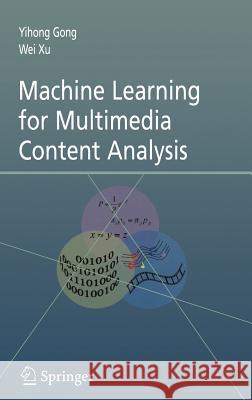Machine Learning for Multimedia Content Analysis » książka
Machine Learning for Multimedia Content Analysis
ISBN-13: 9780387699387 / Angielski / Twarda / 2007 / 277 str.
Challenges in complexity and variability of multimedia data have led to revolutions in machine learning techniques. Multimedia data, such as digital images, audio streams and motion video programs, exhibit richer structures than simple, isolated data items. A number of pixels in a digital image collectively conveys certain visual content to viewers. A TV video program consists of both audio and image streams that unfold the underlying story. To recognize the visual content of a digital image, or to understand the underlying story of a video program, we may need to label sets of pixels or groups of image and audio frames jointly. Machine Learning for Multimedia Content Analysis introduces machine learning techniques that are particularly powerful and effective for modeling spatial, temporal structures of multimedia data and for accomplishing common tasks of multimedia content analysis. This book systematically covers these techniques in an intuitive fashion and demonstrates their applications through case studies. This volume uses a large number of figures to illustrate and visualize complex concepts, and provides insights into the characteristics of many algorithms through examinations of their loss functions and straightforward comparisons. Machine Learning for Multimedia Content Analysis is designed for an academic and professional audience. Researchers will find this book an invaluable tool for applying machine learning techniques to multimedia content analysis. This volume is also suitable for practitioners in industry.











